
Jane Cunningham Croly was a British-born American author and journalist, better known by her pseudonym, Jennie June. She was a pioneer author and editor of women's columns in leading newspapers and magazines in New York. She founded the Sorosis club for women in New York in 1868 and in 1889 expanded it nationwide to the General Federation of Women's Clubs. She also founded the Woman's Press Club of New York City.
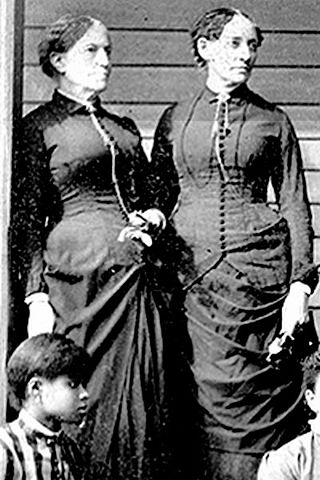
Sophia B. Packard was an American educator, cofounder in Atlanta, Georgia, of a school for African American women that would eventually become Spelman College.
The Huntsville Times was a thrice-weekly newspaper published in Huntsville, Alabama. It also served the surrounding areas of north Alabama's Tennessee Valley region. The Times formerly operated as an afternoon paper, but moved to mornings years after The Huntsville News ceased publication. It was published by The Huntsville Times Company, Inc., a subsidiary of Advance Publications, Inc. The paper was first acquired by Advance's founder, Samuel Newhouse Sr., in 1955. The Times is a sister paper to two other Advance-owned publications within Alabama, The Birmingham News and the (Mobile) Press-Register.
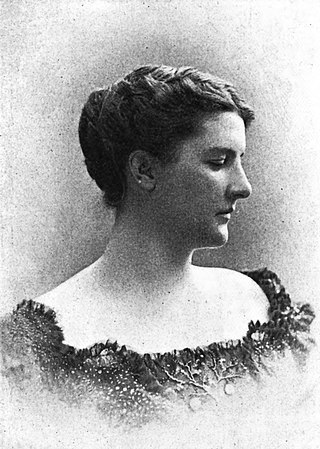
Elizabeth Garver Jordan was an American journalist, author, editor, and suffragist, now remembered primarily for having edited the first two novels of Sinclair Lewis, and for her relationship with Henry James, especially for recruiting him to participate in the round-robin novel The Whole Family. She was editor of Harper's Bazaar from 1900 to 1913.

In journalism, the society page of a newspaper is largely or entirely devoted to the social and cultural events and gossip of the location covered. Other features that frequently appear on the society page are a calendar of charity events and pictures of locally, nationally and internationally famous people. Society pages expanded to become women's page sections.
Hazel B. Garland was a journalist, columnist and newspaper editor. She was the first African-American woman to serve as editor-in-chief of a nationally circulated newspaper chain. Born into a farming family, she was the eldest of 16 children. Although a bright and capable student, she dropped out of high school at her fathers instigation, and spent time working as a maid in order to provide financial assistance to her family.
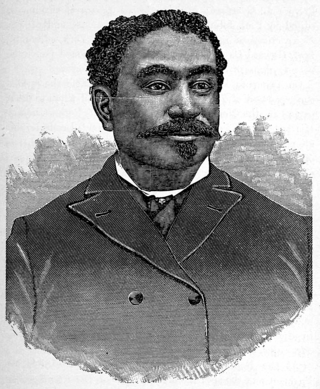
James J. Spelman was a journalist and politician in New York and Mississippi. His early career was as a journalist and a stage performer and manager in New York City. During the American Civil War (1861–1865), Spelman helped encourage the use of African-American soldiers, and once they were allowed, helped recruit. After the war, he moved to Mississippi where he continued his work as a journalist and served for six years in the state legislature.

Lillian A. Lewis was the first African American woman journalist in Boston, Massachusetts. She started her career in the 1880s with the Boston Advocate, a Black community newspaper, and began writing for the Boston Herald in the 1890s. To disguise her gender, she used the pen name "Bert Islew."
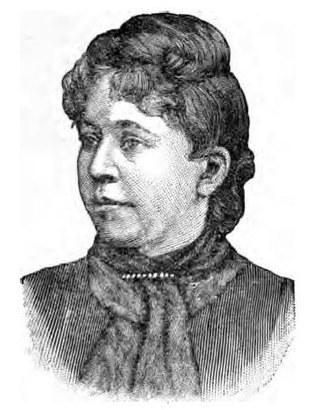
Elizabeth Stumm better known by her pen name Mrs. C. C. Stumm (1857-?) was an African-American teacher and journalist. As her husband was involved in missionary service, the couple moved often, but Stumm was able to work as a writer and teacher. She wrote for many newspapers and journals in the black press and was noted by numerous compilers of her day as an influential and effective journalist.

Our Women and Children was a magazine published in Louisville, Kentucky by the American Baptist, the state Baptist newspaper. Founded in 1888 by William J. Simmons, president of State University, the magazine featured the work of African-American women journalists and covered both juvenile literature and articles focusing on uplifting the race. The magazine staff was made up of women who had an affiliation with State University. Of the hundreds of magazines begun in the United States between 1890 and 1950, very few gave editorial control or ownership to African American Women. Our Women and Children was one of them. It had a national reputation and became the leading black magazine in Kentucky before it folded in 1891 after Simmons' death.

Georgia Mabel DeBaptiste was an African-American journalist, teacher and social worker from Chicago. After completing her education, she taught at various notable black schools before becoming the first woman of African descent to be employed at the Chicago Post Office.

Afro-American Press and Its Editors is a book published in 1891 written by Irvine Garland Penn. Penn covers African-American newspapers and magazines published between 1827 and 1891. The book covers many aspects of journalism, and devotes a chapter to black female journalists.
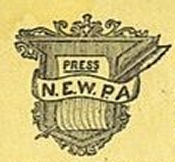
The New England Woman's Press Association (NEWPA) was founded by six Boston newspaper women in 1885 and incorporated in 1890. By the turn of the century it had over 150 members. NEWPA sought not only to bring female colleagues together and further their careers in a male-dominated field, but to use the power of the press for the good of society. The group raised funds for charity and supported women's suffrage and other political causes.
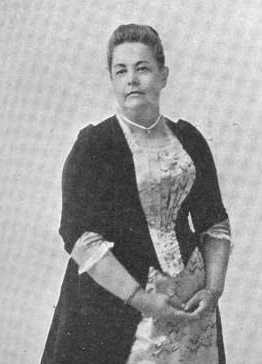
Sallie Joy White (1847-1909) was an American journalist. In 1870 she became the first woman staff reporter on a Boston newspaper when she was hired by the Boston Post, and she continued to write for local newspapers until her death in 1909. She co-founded the New England Woman's Press Association, and was an officer in several national press groups.
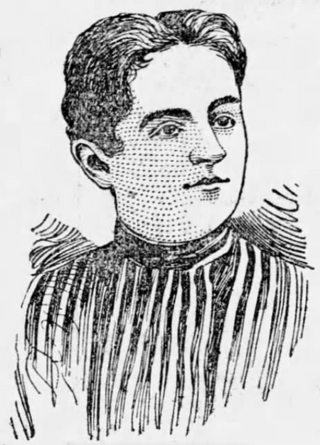
Eliza Putnam Heaton was an American journalist and editor. After her marriage and removal to New York, Heaton began newspaper work, serving first as special writer and afterward as a managing editor in newspaper and syndicate offices, until failing health made arduous tasks impossible. When the New York Recorder was started in 1891, she undertook a task never before attempted by any New York daily – to run a daily news page dealing with women's movements. Marooned in Sicily by ill-health, the author turned for occupation to the study of peasant life, a study eagerly pursued until it was cut short by her death in 1919. Her By-paths in Sicily, could fairly be presented as completed.
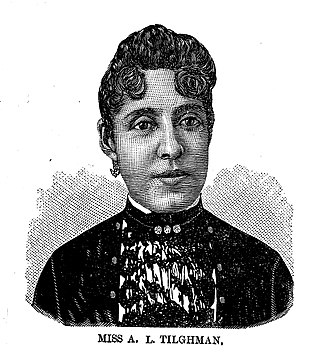
Amelia Louise Tilghman was an American pianist, teacher, journalist, and activist, She founded the first African-American journal devoted to music, The Musical Messenger, published from 1886 to 1891.

The Woman's American Baptist Home Mission Society was an American Christian women's missionary organization. Harriet E. Giles and Sophia B. Packard co-founded, in 1877, the Woman's American Baptist Home Mission Society, supporting missionary women bringing education to the African-American and Native American communities.
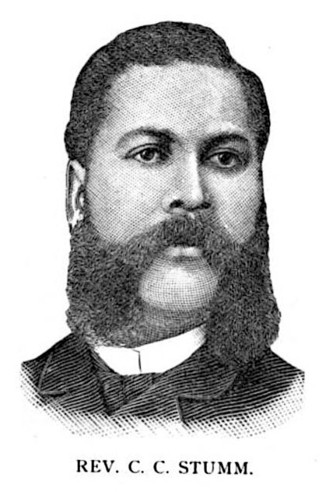
Rev. Chasteen C. Stumm (1848–1895) was an American minister, teacher, journalist, editor, and newspaper publisher. He was from Kentucky, and also lived in Tennessee, Massachusetts, Pennsylvania, and Virginia.














